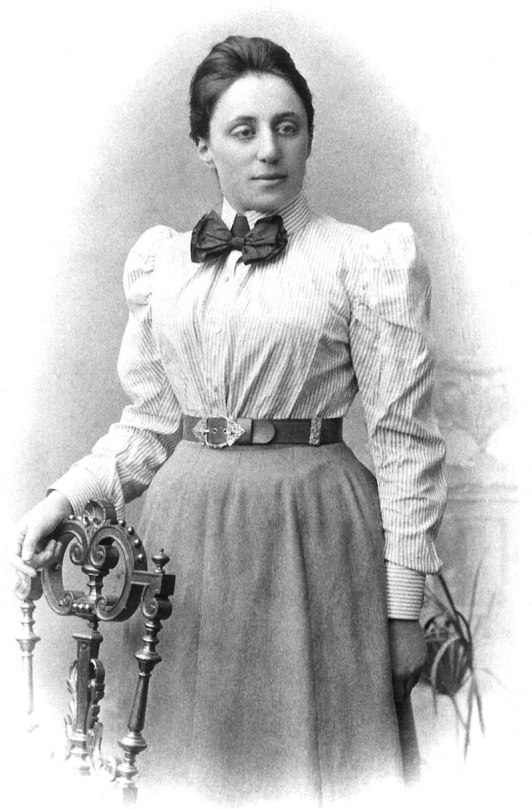#noether's theorem
Explore tagged Tumblr posts
Text











15 notes
·
View notes
Video
youtube
ФРАКТАЛНА ВСЕЛЕНА #физика #херметизъм #принципи #духовност #вселена
In this third part, I connect the Hermetic laws with physical discoveries. I discuss Parallel Universes - are they there or not. Black holes - what they are, according to the eternal Hermetic principles. I connect the fractal universe with Noether's theorem. I added an interesting dialogue with the GPT chat about Noether's theorem.
#youtube#physics#hermeticism#spirituality#universe#parallel universes#noether's theorem#fractal universe#black holes
0 notes
Text
The Philosophy of Invariance
The philosophy of invariance examines the concept of constancy or unchanging nature within various contexts, including science, mathematics, ethics, and metaphysics. This philosophical exploration seeks to understand what remains constant amidst change and why such constancies are significant for our comprehension of reality, knowledge, and truth.
Key Concepts in the Philosophy of Invariance
Definition of Invariance:
Concept: Invariance refers to properties or principles that remain unchanged under specific transformations or conditions.
Argument: Identifying invariances helps in understanding the fundamental nature of systems and theories, providing a stable foundation for analysis and interpretation.
Invariance in Science and Mathematics:
Physical Laws: Many physical laws, such as the laws of motion and conservation laws, are considered invariant under transformations like time shifts or spatial rotations.
Symmetry: Invariance is closely related to symmetry in physics and mathematics. For example, the invariance of physical laws under certain symmetries leads to conservation laws according to Noether's theorem.
Mathematical Constants: Constants like π (pi) and e (Euler's number) are examples of invariance in mathematics, holding the same value across various contexts.
Invariance in Metaphysics:
Universal Principles: In metaphysics, invariance pertains to principles or truths that remain constant across possible worlds or different contexts.
Identity and Change: Philosophers explore how identity can persist over time despite changes, focusing on the invariant core that defines an entity.
Ethical Invariance:
Moral Principles: The idea that certain ethical principles are invariant, holding true regardless of cultural or situational differences.
Universal Ethics: This approach argues for the existence of universal moral truths that apply to all rational beings.
Theoretical Debates and Implications
Role of Invariance in Scientific Theories:
Concept: Invariance as a criterion for the validity and robustness of scientific theories.
Argument: Scientific theories that exhibit invariance under transformation are often considered more fundamental and reliable.
Philosophical Implications of Mathematical Invariance:
Concept: The philosophical significance of invariant mathematical properties and structures.
Argument: The constancy of mathematical truths supports the notion of an objective mathematical reality, independent of human perception.
Ethical Relativism vs. Invariant Ethics:
Concept: The debate between ethical relativism, which denies invariant moral principles, and invariant ethics, which upholds them.
Argument: While ethical relativism emphasizes cultural and contextual differences, invariant ethics seeks universal moral truths applicable to all.
Metaphysical Invariance and Identity:
Concept: The persistence of identity amidst change and the metaphysical basis for invariance.
Argument: Philosophers debate whether there are essential properties that remain invariant to preserve identity through change.
The philosophy of invariance explores the concept of constancy across different domains, from science and mathematics to ethics and metaphysics. By understanding what remains unchanged amidst transformations, this philosophical inquiry provides insights into the fundamental nature of reality, the stability of scientific theories, and the universality of ethical principles.
#philosophy#epistemology#knowledge#learning#education#metaphysics#ontology#ethics#chatgpt#Invariance#Philosophy of Science#Symmetry#Physical Laws#Metaphysics#Universal Ethics#Mathematical Constants#Identity and Change#Noether's Theorem#Ethical Invariance#Scientific Theories#Objective Reality
1 note
·
View note
Text
Would people be interested in a video course on noncommutative algebra? The prerequisite knowledge would be linear algebra, basic group module theory and in the end some knowledge of Galois theory. Topics I might teach would include: Jacobson Radical Theory Central Simple Algebras Wedderburn-Artin and Wedderburn-Mal'tsev The Double Centraliser Theorem Noether-Skolem Theorem Brauer group Theory Crossed Products and Galois Theory Group Cohomology, briefly, and connection with the Brauer Group Further topics to be decided (Maybe Morita Theory, or more Brauer Theory).
161 notes
·
View notes
Text
an underrated physics fact
my high school physics teacher told us about noether's theorem, which was basically that continuous symmetries always correspond to a conservation law.
for example, the fact that all our laws of physics remain the same forever into the past, the future, and all the infinitesmial instants in between, implies conservation of energy. and the fact that our laws of physics remain the same everywhere in the universe implies conservation of momentum.
it still blows my mind today. yet despite many people understanding the genius of einstein's theory of relativity, nobody i've mentioned noether's theorem to seems to have even heard of it. i know einstein was the founder of the idea that spacetime is connected, light travels at a constant speed always, but noether's connection between space, time, energy, and all invariants of the physical world feels a lot more elegant to me.
28 notes
·
View notes
Text
Noether’s theorem implies any conservation law arises from a symmetry, e.g., angular momentum from rotational symmetry or energy due to time symmetry. Is the conservation of charge in electromagnetism due to gauge symmetry, or some other symmetry? I feel like I saw something like this mentioned somewhere once but Google is being unhelpful as usual.
#something about how if you have a theory with Lorentz invariance and gauge symmetry#it’s always going to end up looking like electromagnetism?#I may be wildly misremembering this
52 notes
·
View notes
Text
#sadly this is very much not limited to cis people
(felt this was a good addition)
"girl math is when you go shopping using a credit card so it's basically free" "girl math is when you use the card with your boyfriends name so it's free" "girl math is when it's free if it's under $5" haha yeah girl math is when you're stupid and bad with budgeting and are always overspending on clothes because you're just a dumb helpless #girl haha I love rebranding the patriarchy as a fun #feminist trend does anyone else want to get off the ride I want to get off the ride now is there an option to get off the ride I never want to hear a cis person speak again please I want to get off the ride
#i didn't get to noethers theorem before i switched majors#but at some point i sat down w/ a textbook and went through the steps to get there until i understood it#anyways im very much liking 'does anyone want to get off the ride' as a way of describing this feeling#yeah ok it was fun we did the loop de loop. wheeeee haha right. can we do something else now. id like to get off the ride
3K notes
·
View notes
Text
I am unreasonably annoyed by ada Lovelace being elevated to a household name. She had no actual lasting contributions to the field. For someone talked about as a mathematician, what theorems did she prove? For someone talked about as a computer scientist, what algorithms that we use now are her inventions? I've been studying computer science for a decade now and I have never once heard her name come up in an actual classroom, nor do I know anyone who has (at least, not for her actual contributions to the field, as opposed to the kinda-incorrect "first programmer" thing). She just didn't really *do* anything.
And if you're looking for women in STEM who really did make contributions that are overlooked by the general populace, why not focus on Emmy Noether? My undergrad advisor called Noether's theorem "the most beautiful result in physics" and he was 100% correct. And that's just physics, she's better known as a mathematician.
182 notes
·
View notes
Text

[18/9/24] I was on my feet pretty much all day today because I was either teaching or in a study hall since 9am, with brief breaks for slipping into a library to work on problem sets. Dear lord, am I tired! I want to be more consistent with posting because don’t get me wrong,,, I’ve been studying! So much so that I don’t have time to post about it.
I’ve really been enjoying QFT and GR. So glad to have the chance to think really deeply about these topics because we’re covering symmetries in both of them, and one thing you have to know about me is that I am in love with symmetries and group theory and Noether’s theorem. Conservation laws, my heart!
Should I do a post about topics I enjoy like this one? I feel like there’s a lot to say about the beautiful mathematical formalism around deep physical topics. There are some concepts in this world that completely take over you once you know they exist. (Another Noether’s Theorem plug)
#physics#min vs college#studyblr#college#study aesthetic#physics studyblr#particle physics#mathematics#min vs fa24
29 notes
·
View notes
Text
neat paper!
The question addressed in this paper springs from the following observation. In his 1918 theory Weyl introduced local gauge transformations (transformations that depend on arbitrary functions of space and time), and it is local gauge symmetry that he connects with conservation of electric charge. According to the standard modern account, however, global gauge symmetry is invoked to deliver conservation of electric charge (see, for example, Leader and Predazzi, 1996; Ryder, 1985; Sakurai, 1964; Schweber, 1961; Sterman, 1993; Weinberg, 1995). Which is the correct symmetry to connect with charge conservation? This question might seem straightforward on the surface, but it turns out that a rather interesting story lies behind any satisfactory answer. The story involves a triangle of relationships, none of which has been adequately addressed in the literature to date. This triangle involves Weyl’s work, relativistic field theory, and Noether’s theorems.
note the "s" on "theorems": a big part of this paper is Noether's sometimes-underapprieciated second theorem, which addresses local symmetries.
particularly cute is the incorrect derivation showcased in the appendix, where we get charge conservation from Maxwell EM "for free"—except it wasn't actually free, because assuming we could apply Noether's theorems in the first place was equivalent to demanding charge conservation.
7 notes
·
View notes
Note
for the math ask meme: 9, 18, 24, 49 :3c
9. They're all my children, I can't pick a favourite!
9. Euler's theorem and Noether's theorem
18. I figured out where to put the rest of the primes! :3
18. On my main blog, I think under #proof
24. Well I know the answer, it's *REDACTED*
24. It's probably right
49. Again, they're all my children
49. Probably the computable numbers, but idk
Also, what is the c in :3c
6 notes
·
View notes
Text
What are some of examples of female geniuses you can think of? In any field, not just science.
For me, it's:
Emmy Noether - changed the math and physics game like never before with Noether's theorem and her theory of symmetries
Emily Bronte - NEET who dropped a banger of a book with incredible insight into humanity then died :'(
Andrea Dworkin - visionary unafraid of coming up with insane ideas and moving forward with laserlike precision. sometimes she fucked up (the end of woman hating) but no other feminist writer has had her breadth or depth or creativity
Kate Bush - invented the entire template for dynamic off the wall 'quirky' female artists, then invented another template for boundary-pushing pop music with 'The Dreaming'
Nina Simone - boundary pushing musician melding jazz and classical and social responsibility. she just improvised a fugue once during one of her live performanes, no biggie
59 notes
·
View notes
Text

Amalie Emmy Noether (23 March 1882 – 14 April 1935) was a German mathematician who made many important contributions to abstract algebra. She proved Noether's first and second theorems, which are fundamental in mathematical physics. She was described by Pavel Alexandrov, Albert Einstein, Jean Dieudonné, Hermann Weyl and Norbert Wiener as the most important woman in the history of mathematics. As one of the leading mathematicians of her time, she developed theories of rings, fields, and algebras. In physics, Noether's theorem explains the connection between symmetry and conservation laws.
#Emmy Noether#women in science#women in history#photo#photography#black and white#xix century#xx century
28 notes
·
View notes
Text
Whenever I'm asked about religion, I start thinking about quantum physics.
Thus, what we observe as the quantum world’s strangeness — entanglement, superposition, decoherence — may not be strange at all. It may simply be what reality looks like when it is trying to persist in the face of entropy. From this perspective, space, time, symmetry, and conservation are not the foundation of reality — they are the footprints of structures that manage to hold on.
The structures that survive are the ones that can reverse, restore, and reconfigure themselves against entropy. And the world we see is composed not of things in space, but of threads of mutual information that endure — or collapse — under pressure.
2 notes
·
View notes
Note
answer all the primes on the real's mathblr ask post!
Hopefully I don't miss any, here goes! I'll put it under a cut cause my answer to 2. is already long oops
2. What math classes did you do best in?
I got 93% in my differential geometry exam last year which is my best grade. It was definitely the easiest module relative to the difficulty of other third year modules.
It also helped that one of the lecturers refused a question from the past exam that we were given solutions to
I also got 91% in the analysis module I took last year which was half measure theory and half an intro to functional analysis. And I got 90% in complex analysis, multivariable calculus, and pdes. It may come as a surprise that topology wasn't my best but do to a mix of personal circumstances, the exam being at the very end of a long exam season and the exam having a more combinatorial flavour in the second half all played against me (not that I did badly, I still got 83% but was my second lowest grade last year)
3. What math classes did you like the most?
In first year linear algebra was my favourite and being able to give tutorials in it this year I still think it's one of my favourites.
Complex analysis is also still high up there and is probably what spawned my love of topology (the topological stuff was definitely more present than in real analysis).
Obviously topology is also one of my favourites, though as alluded to in the previous question there was a more combinatorial approach to some things which I wasn't as much of a fan of (they did change the course significantly for this year though and it seems much better). Differential geometry was also very enjoyable.
This year, algebraic topology has obviously been one of my favourites, even if the second term lecturer wasn't the most organised person. I enjoyed representation theory a lot more than I thought I would and was probably my second favourite module this year. Riemannian geometry was also really good, especially since the lecturer was lovely!
5. Are there areas of math that you enjoy? What are they?
Topology first and foremost! I'm quite interested in differential topology and homotopy theory at the moment. The former is what my dissertation is about and there are things I'd like to read more about relating to it! Homotopy theory is more of a curiosity since I've not had much chance to read about it yet but that's one of my summer plans!
I also enjoy group theory and homological algebra a lot!
7. What do you like about math?
It's inherent exploratory nature as well as how everything connects. One big thing in maths is we have structures and we see what happens when we play with them or alter them. Another is realising connections between different areas. Like for example, my friend who has the same advisor as me for his diss is writing his about Kähler manifolds and Dolbeault cohomology and there's a proof of the Hodge decomposition theorem (I think that's the theorem) that involves the representation theory of sl_{2,C} (as in the lie algebra). Like the fact there's a connection at all is really interesting to me. I suppose that relates to my interest in when algebraic structures sort of arise naturally when looking at certain things in topology.
11. Tell me a funny math story.
13. Do you have any stories of Mathematical failure you’d like to share?
My real analysis lecturer was giving an example of a sequence that didn't converge uniformly and I realised how to alter the example slightly to make it converge uniformly. Turns out that was his next example and he was so happy that I'd preempted it that he jokingly proposed to me.
17. Are there any great female Mathematicians (living or dead) you would give a shout-out to?
None that have come to mind, and I've been thinking a while /lh
Emmy Noether is an obvious one but she literally started homology theory as we know it! I think the story is she attended combinatorial topology lectures and realised she could reframe the language of Betti numbers etc in terms of what we know as simplicial homology.
There are a few living female mathematicians I could shout out but it I do not wish to be doxxed.
19. How did you solve it?
I'm not exactly sure what this question is referring to so I will just give one piece of advise for solving problems. Sometimes a problem is hard because you just haven't had enough experience to solve it yet. Obviously this is isn't helpful is you're trying to solve a homework/exam problem but more generally about learning mathematics. Sometimes you haven't got the tools or the experience to think about it in the right way and that's okay. And the best part about it is that one day you'll come back to the problem and realise that it's easy/easier for you to solve. I think everyone studying maths would benefit from being able to experience this once in a while because it serves as an excellent reminder that you're growing as a mathematician.
23. Will P=NP? Why or why not?
Probably not, though I'm not well-versed enough in it that I could recall well the explanations given for why people think not.
29. You’re at the club and Grigori Perlman brushes his gorgeous locks of hair to the side and then proves your girl’s conjecture. WYD?
Asking him to join the polycule obviously
31. Can you share a math pickup line?
This one is courtesy of me in first year: Are you a subset of a vector space whose elements are of the form ax+b because you're looking (af)fine
37. Have you ever used math in a novel or entertaining way?
Certainly not novel but I have dabbled in how train timetabling works a bit because I have what is essentially a model railway in (heavily modded) Minecraft!
41. What’s the silliest Mathematical mistake you’ve ever made?
I remember in secondary school we did these tests every so often that tested your "essential mathematical skills". I once made the very silly error of writing 3×8=18. Perhaps not the silliest mistake ever but it's one that's stuck with me
43. Did you ever fail a math class?
Not as of yet
47. Just how big is a big number?
As my friend would say: at least 3
53. Do you collect anything that is math-related?
Currently only textbooks, of which I have quite a few now!
59. Can you reccomend any online resources for math?
For algebraic topology I can recommend Friedl's lecture notes. It's a massive several thousand pages. I have currently only used it as a reference document/supplementary material. But from what I've used of it it's clearly written (though trying to use the search function is an uphill battle with how large the document is)
61. Does 6 really *deserve* to be called a perfect number? What the h*ck did it ever do?
It's perfect insofar as its equal to the sum of its proper divisors but it's certainly not free of sin
67. Do you have any math tatoos?
The statement "every tattoo that I have is a maths tattoo" is vacuously true.
71. 👀
👀
73. Can you program? What languages do you know?
Yes but I am very rusty. I used to know java decently well and I knew a bit of python. But I'd probably have to refresh myself a bit before being able to program again
Thanks for the ask!!
4 notes
·
View notes
Text
I don't remember ever being dead therefore i must've had lived forever. I think reincarnation or eternal recurrence might be real, minus karmic reincarnation
fun fact I'll forget to associate: under time reversal symmetry the property which is conserved as per noether's theorem is literally called 'kramer's degeneracy' in reference to degenerate energy levels which can be thought of as energy levels which have been corrupted
8 notes
·
View notes